We’re back for an update on winter birds with our favorite birding expert, Scott Menough, co-owner with his wife, Sandy, of Wild Birds Unlimited in Lakewood since 1989. Scott is the host of BirdTalk radio on Saturdays from noon to 1 p.m. on 710 KNUS and 1690 KDMT, and also hosts a podcast at www.BirdTalkGuys.com.
An Abundance of Winter Birds
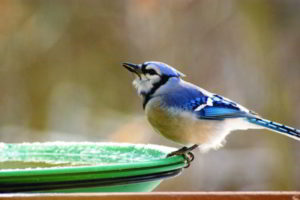 We’re fortunate to have lots of birds that stay with us here all winter, Scott said, although of course not all of them will stick around. Birds that only rely on insects, such as hummingbirds, swallows and flycatchers, head south for warmer weather, while still other birds head down here from the north. (Everything is relative!) Fish-eating birds, for instance, such as ducks and herons come in search of open water and stay until it freezes over.
We’re fortunate to have lots of birds that stay with us here all winter, Scott said, although of course not all of them will stick around. Birds that only rely on insects, such as hummingbirds, swallows and flycatchers, head south for warmer weather, while still other birds head down here from the north. (Everything is relative!) Fish-eating birds, for instance, such as ducks and herons come in search of open water and stay until it freezes over.
Winter birds need high-protein, high-fat foods. Fat helps them stay warm and keep their energy up. Chickadees, woodpeckers, nuthatches, bushtits and other insect-eating birds that stay year-round rely more heavily on fat-rich seeds in the winter. Finches and some sparrows are seed-eaters that we’ll see all year. More blue jays come down from the north along with dark-eyed juncos and bald eagles.
Winter Feeding
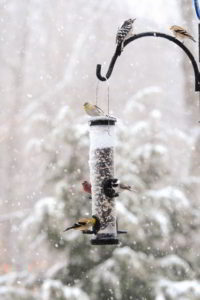 As daylight hours get shorter, Scott said, birds have to survive on a full stomach through long, dark, cold nights.
As daylight hours get shorter, Scott said, birds have to survive on a full stomach through long, dark, cold nights.
“We want to have our feeders full at the end of the day so there’s something for the birds in the morning. It can be really tough on birds when it snows because a lot of their natural foods will be covered with snow. Having good high-fat, high protein foods in our feeders helps them survive the winter,” he said.
Sunflower and safflower seeds, tree nuts and peanuts are all good winter food choices. Suet is important because suet is fat and that really keeps birds healthy, Scott said.
“We also recommend products like bark butter and bark butter bits that are high in fat. There are 140 species of North American birds that will eat Wild Birds Unlimited’s ‘Jim’s Birdacios Bark Buttter,’ more than any other single food. Jim Carpenter, the founder of our franchise, worked in his kitchen for almost ten years to develop the recipe,” Scott said.
Winter Bathing and Drinking
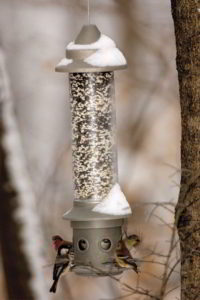 Despite the cold, birds still need to bathe because clean feathers will keep them warmer. When their natural water sources freeze over, birds will end up eating snow.
Despite the cold, birds still need to bathe because clean feathers will keep them warmer. When their natural water sources freeze over, birds will end up eating snow.
“Eating snow can lower their body temperature and can actually cause dehydration. You can put warm water out a few times a day or you can get birdbath heaters that are thermostatically controlled to about 40 degrees. It doesn’t make a bird hot tub, it just keeps it unfrozen,” Scott said. “You won’t find discarded champagne bottles and bird bathing suits under the heated bath.”
In extreme weather birds may go inside birdhouses, even though they’re intended for raising the young.
“Winter bird feeding is not only enjoyable but rewarding. We are rewarded with the sights and sounds of the birds and the feeling that we’re able to help our winged friends,” Scott said.
For more information about caring for backyard birds this winter, call Scott at Wild Birds Unlimited, 303-987-1065, or just stop by the store at 2720 S. Wadsworth Boulevard.

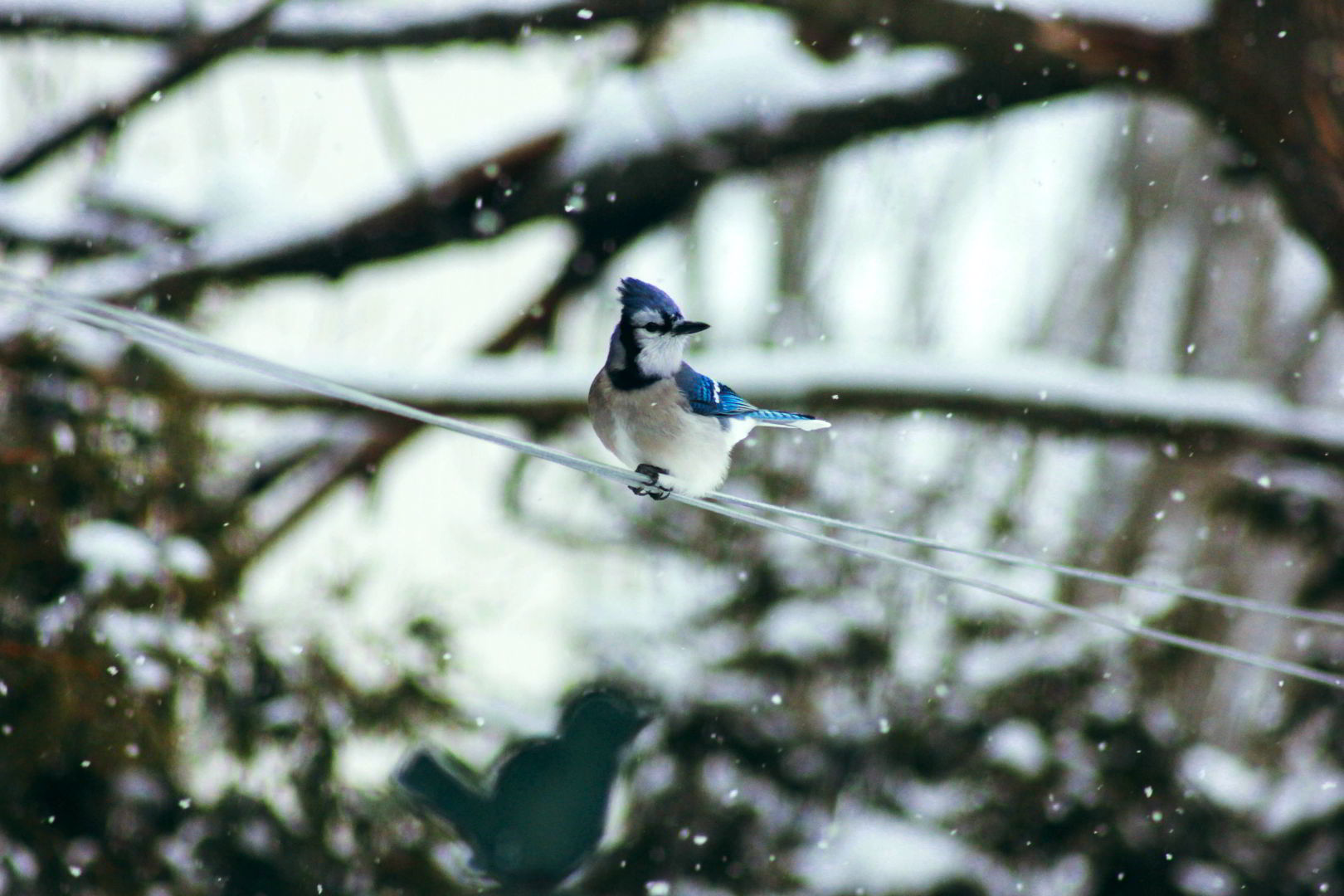


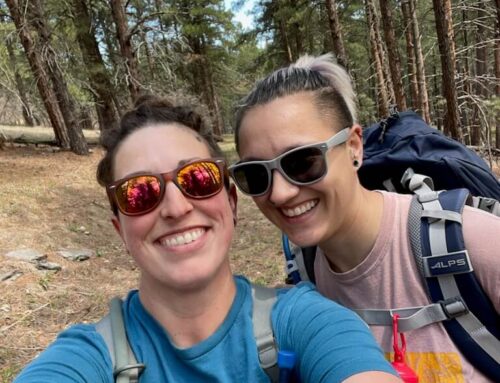

Leave A Comment